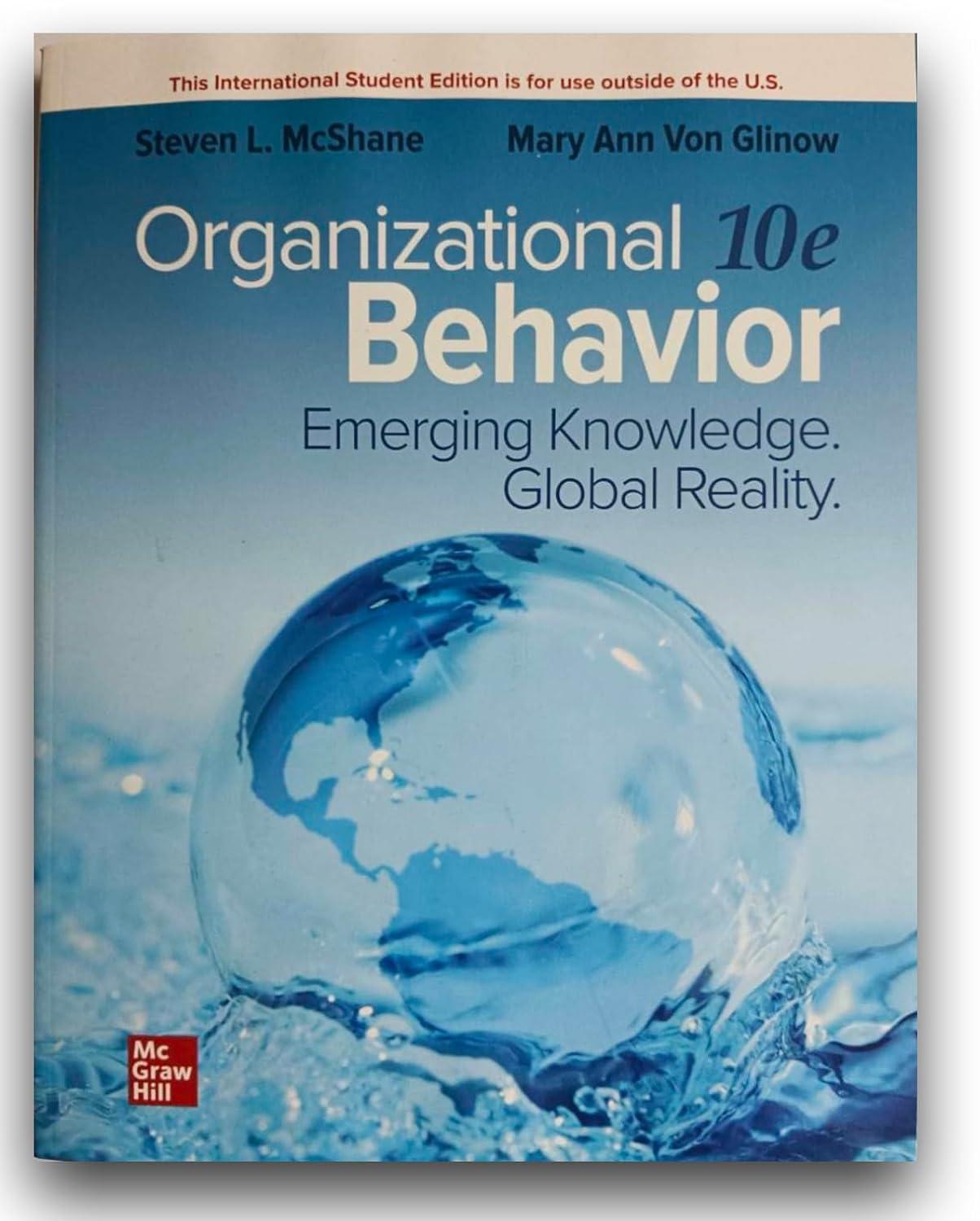Getting hired at Bridgewater Associatesthe worlds largest hedge fundis not a cake-walk. Job applicants first watch online
Question:
Getting hired at Bridgewater Associates—the world’s largest hedge fund—is not a cake-walk. Job applicants first watch online videos depicting the culture and daily office life at the Westport, Connecticut, investment firm. Next, they spend a few hours completing the Myers-Briggs Type Indicator and three other online assessments of their personality and values.
Applicants who pass the online selection process engage in a structured interview over the phone with consultants, who further assess the individual’s character. Even after accepting Bridgewater’s job offer, new recruits take a final two-hour personality and personal values assessment developed by the company.
Bridgewater Associates founder Ray Dalio says assessing an individual’s personality and values helps the hedge fund company assign people to jobs that fit their personal attributes. “I needed a systematic approach to capturing and recording our differences so that we could actively take them into consideration when putting people into different roles at Bridgewater,” he wrote in his book on the subject. The information is also used to understand why conflicts occur, why problems arise, and presumably to minimize those issues. Dalio suggests that values top the list of importance. “In picking people for long-term relationships, values are most important, abilities come next, and skills are the least important.” Personality and values assessments are clumped together in the hiring process, so personality is likely also a top priority.
Each employee’s personality, values, and other attributes are displayed on digital Baseball Cards. Every employee can view all other Baseball Cards through Bridgewater’s digital app. Each attribute has a score based on the personality and values test results. “I found that we needed to have these [Baseball Cards] and refer to them regularly because without them, people tended to interact with each other without any regard to who was good or bad at what,” says Dalio. “By recording these qualities in people’s Baseball Cards, others who’d never worked with them before could know what to expect from them.”
Each employee’s Baseball Card scores are initially calculated from personality and values assessments during the hiring process. However, these scores change over time based on ongoing instant evaluations by coworkers. As part of Bridgewater’s culture of “radical transparency,” coworkers regularly evaluate each other after meetings and presentations using a special company app called Dot Collector.
The app has a 10-point scale and more than 100 attributes (leadership, organized, attentive, customer-focused, etc.)
These scores are immediately added to the rated employee’s Baseball Card.
Dalio explains that this instant feedback gives everyone a more accurate estimate of their character and capabilities.
Since the feedback is ongoing and comes from many people, Dalio argues the outcome is more objective rather than the person’s own subjective self-evaluation. “We do it because it elevates ourselves above our own opinions, so that we start to see things through everybody’s eyes, and we see things collectively.”
Approximately one-third of Bridgewater employees leave within two years after being hired. Dalio suggests that this turnover confirms the effectiveness of the company’s measurement of employee personality and values, the ongoing feedback from peers, and the transparency of everyone’s attributes. “Over time, a body of evidence builds up, showing which people can be relied on and which cannot,” says Dalio. “Track records matter, and at Bridgewater tools such as Baseball Cards and the Dot Collector make everyone’s track records available for scrutiny.”
Discussion Questions 1 To what extent and in what ways would Bridgewater Associates benefit from measuring the personalities and values of job applicants, and from displaying these attributes to all staff in employee Baseball Cards?
2 What problems and limitations might generally occur from Bridgewater’s (or any other firm’s) reliance on personality and values assessments to make decisions about hiring, assigning job duties, and placement into teams? What specific personality and values assessment practices at Bridgewater might create problems or be less effective than the company believes?
3 Bridgewater believes that peer feedback improves the initial estimates of employee attributes. Do you think this is true? Why or why not?
Step by Step Answer:

ISE Organizational Behavior Emerging Knowledge Global Reality
ISBN: 9781266108099
10th Edition
Authors: Mary Ann Von Glinow Steven McShane





